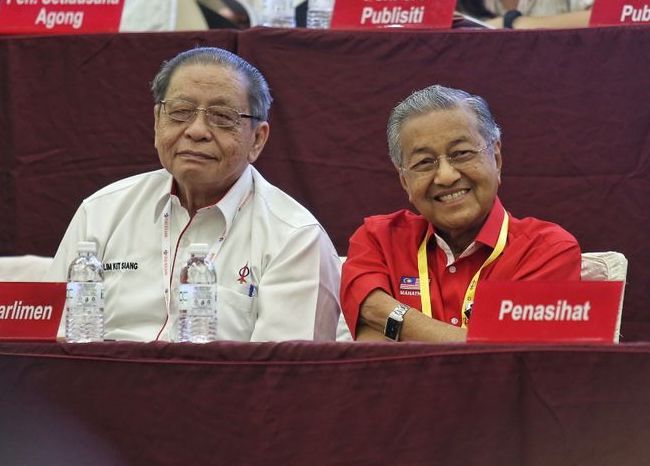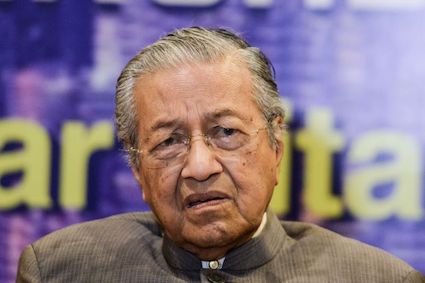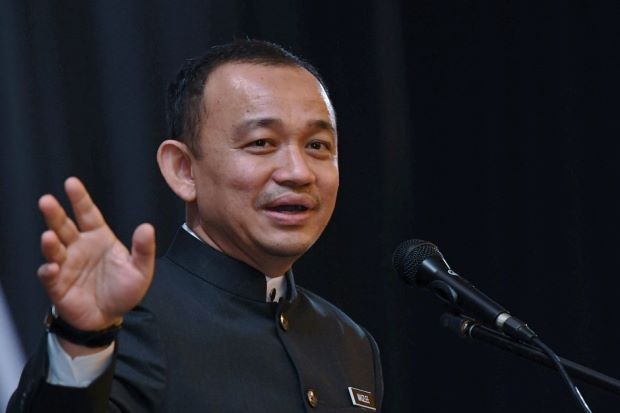Who speaks for Pakatan Harapan?

Why all this confusion? So, what is it going to be? And who speaks for Pakatan Harapan? Is Malaysia an Islamic country, like Tun Dr Mahathir Mohamad says, or is Malaysia a secular country, like DAP says? Who speaks for Pakatan Harapan?
THE CORRIDORS OF POWER
Raja Petra Kamarudin
“Who speaks for PAS? Kit Siang asks after conflicting messages on Christmas,” reported the Malay Mail Online today (READ HERE).
Actually, the same thing can be asked about Pakatan Harapan. Who speaks for Pakatan Harapan?

Who speaks for Pakatan Harapan, Mahathir or Kit Siang?
The news item below is but one of many examples. But it is a crucial issue because it involves Islam, or rather the propagation (dakwah) of Islam. Church groups do not want Islam propagated in Malaysia, in particular in Sabah and Sarawak.
But then we have PERKIM, JAKIM, Pusat Islam, the state religious departments, and so on, that cost billions a year of taxpayers’ money to maintain. Are these going to be closed down, as they should, if, as DAP says, Malaysia is a secular country?
Then we have sharia laws that in some cases override or supersede common laws.


Mahathir announced that Malaysia is a fundamentalist Islamic country while DAP insists Malaysia is a secular country
Why all this confusion? So, what is it going to be? And who speaks for Pakatan Harapan? Is Malaysia an Islamic country, like Tun Dr Mahathir Mohamad says, or is Malaysia a secular country, like DAP says? Who speaks for Pakatan Harapan?
****************************************************

Mohd. Kamal bin Abdullah
The Sarawak Evangelical Christian Association has refused to accept Education Minister Maszlee Malik’s explanation for his use of the word “dakwah”, insisting that the term carries a connotation involving Islamisation.
In a statement on Christmas Day yesterday, the association said they not believe in his explanation and added that Sarawak Christians felt their rights to freedom of religion was being eroded by the federal government.
“We cannot accept the minister’s subsequent explanation in his attempts to defuse the furore created by his remark, by explaining what he had a broader meaning for the term ‘medan dakwah’ that he used in parliament.
“A quick reference to any dictionary will tell us that the word ‘dakwah’ is none other than the rally cry for Islamisation of the two East Malaysian states. We are sure that, after his remarks, Maszlee cannot unequivocally assure the people of Sarawak that there is really no ongoing Islamisation agenda in the education system in our State,” it said in a statement.
“The reality is that the government has been, and still is, overtly and persistently favouring one religion over the others in its policies and allocation of resources. This has been the case right from the early stage of the federation,” it added.
The association alleged that non-Muslims have been facing the increasing erosion of their religious space over the years, citing the ban on the word “Allah” to non-Muslims and the Al-Kitab saga in 2011 as two examples of situations where Sarawak Christians have had to fight for their right to practice their faith.
“Sarawak’s unique religious freedom is enshrined in the Federal and State Constitutions, which provide ample space for the adherents of each religion to profess, practise and propagate their faith.
“It is therefore unthinkable for the government to use any of its ministries or government agencies to support the agenda of just a specific religion, albeit Islam being the official religion,” it said.
Maszlee earned the ire of Sabahans and Sarawakians when he called on religious teachers from peninsular Malaysia staying in East Malaysia to make the states their “medan dakwah” or arena to evangelise.
Another Christian group, the Association of Churches in Sarawak had earlier also voiced its displeasure with Maszlee’s statement.
After much criticism, he later defended his use of the word and said it was not a call for Islamisation but was meant to be taken in a “wider context” to mean “bringing mankind towards good” ― which could be done through various means including education.
“Dakwah” literally means “invitation” in Arabic. However, its most common use among Muslims is to proselytise or preach about Islam.

